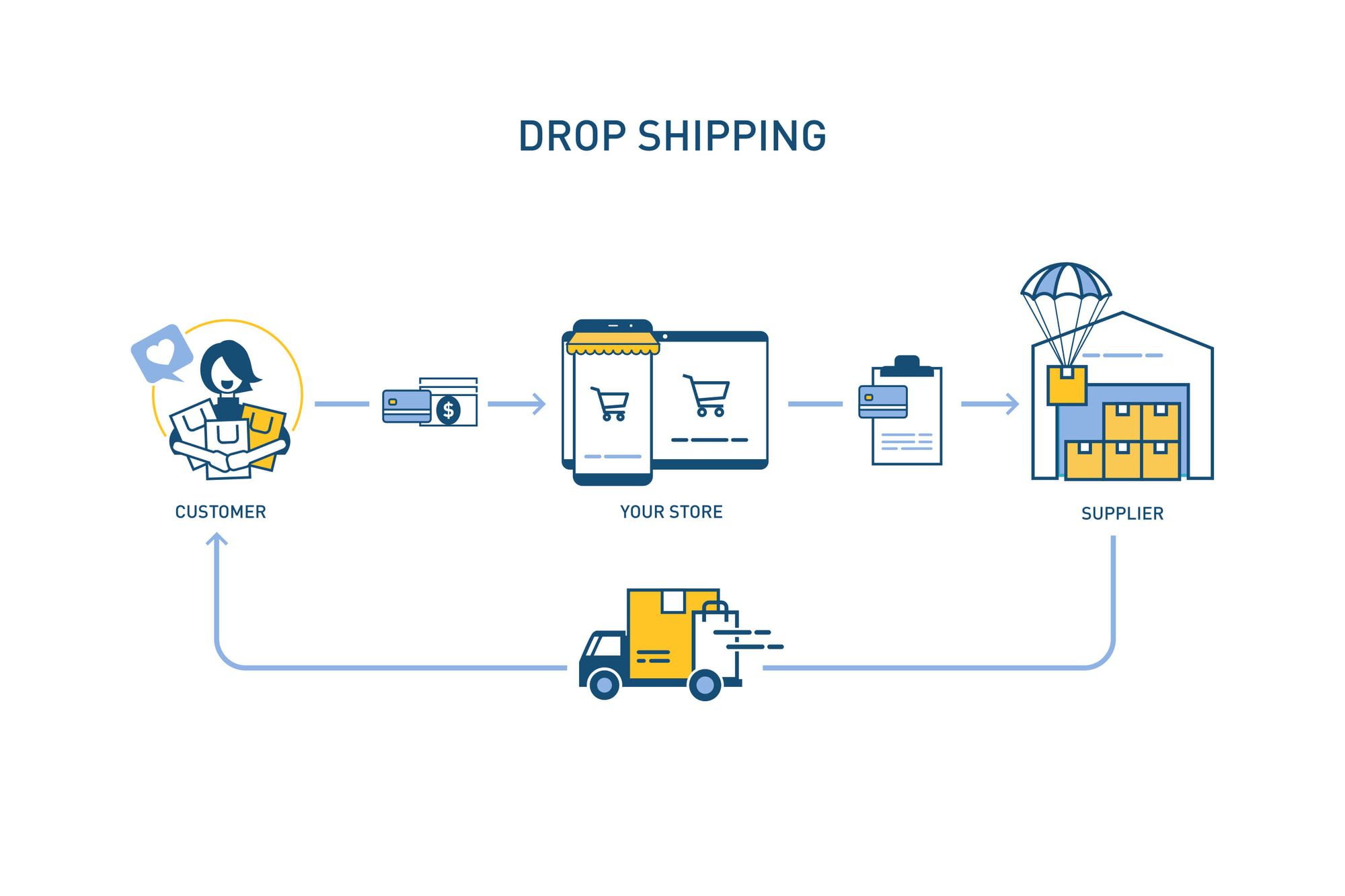+22 World Best Business Opportunities To Start Right Now (2026)

Table Of Contents
Dreams of entrepreneurial success often dance in the minds of many, yet the thought of risking hard-earned savings can cast a shadow of doubt. Fear not, for the landscape of business brims with opportunities that demand minimal investment, promising substantial returns for those armed with a strategic vision.
In a world boasting an estimated 334 million businesses, the path to success requires a distinctive approach that sets you apart from the crowd. Fear not, dear reader, for within this blog lies a treasure trove of insights – the World's Best Business Opportunities carefully curated to empower you in making savvy decisions for your entrepreneurial journey.
Let's explore entrepreneurial potential with the knowledge and foresight to turn aspirations into achievements. Welcome to a world of possibilities—let's make your entrepreneurial dreams a reality!
Top 22 World Best Business Opportunities
1. Digital Marketing Agency

Commencing a digital marketing agency is a top-notch business concept due to its potential for substantial profits with minimal upfront costs. Whether pursued as a collaborative effort with partners skilled in digital marketing, graphic design, and content creation or embarked upon solo, the prospects for success remain promising.
The initial financial outlay typically involves acquiring essential marketing tools, software, and infrastructure to establish an online presence. Necessities may encompass procuring a laptop, licensed editing software, and investing in paid marketing tools.
Tips to help you start a successful digital marketing agency:
- Identify Your Niche: Choose a specific area to specialize in and attract clients, like social media marketing or SEO.
- Build a Strong Online Presence: Showcase your skills through a professional website and maintain an active social media presence to avoid the common pitfalls businesses face when they lack one.
- Network and Partner Up: Attend industry events and join online communities to connect with potential clients and collaborators.
- Focus on Results: Provide value by delivering tangible results for your clients and continuously optimizing campaigns for maximum ROI.
- Invest in Learning: Stay updated with industry trends and expand your skill set through continuous learning and professional development.
2. Affiliate Marketing

Affiliate marketing emerges as a profitable venture promoting popular brands through one's website. Individuals lacking a website or blog can participate in affiliate marketing by enrolling in affiliate programs like Amazon's.
Affiliate marketers earn commissions for each product or service purchased through marketing links. These commissions vary, ranging from as low as 1% to as high as 20% or more, contingent upon the volume of referrals and the nature of the product.
Tips to help you start a successful Affiliate Marketing:
- Choose a Profitable Niche: Find niches with high demand and low competition to establish your presence.
- Select Quality Products: Partner with reputable merchants and offer products aligned with your audience's needs.
- Create Engaging Content: Publish quality content that integrates affiliate links and resonates with your audience.
- Build Trust: Provide honest recommendations and engage your audience to foster trust and loyalty.
- Track Performance: Use analytics tools to optimize your strategies and maximize revenue potential.
Read more: Best Landing Pages for Affiliate Marketing
3. Cloud Kitchen

With cloud kitchens, homemakers can leverage commercial kitchen spaces to fulfill food orders received via calls or online portals. These kitchens offer a platform for showcasing the culinary delights that evoke the cherished taste of home-cooked meals. For efficient scaling and streamlined operations, many successful cloud kitchens rely on google cloud consulting services to manage data, optimize delivery logistics, and integrate real-time analytics. The beauty of cloud kitchens lies in their accessibility and affordability, making it feasible for homemakers to venture into the food business with minimal investment.
Tips to help you start a successful Cloud Kitchen:
- Identify Target Audience: Research your audience and specialize in a niche cuisine tailored to their preferences.
- Choose a Strategic Location: Select a location close to your target market and compliant with local regulations.
- Invest in Quality Equipment: Equip your kitchen with high-quality appliances and technology for efficient operations and food safety.
- Build a Strong Brand: Develop an attractive online presence and leverage social media to promote your brand and engage customers.
- Focus on Quality and Consistency: Prioritize quality ingredients and customer experience to ensure satisfaction and loyalty.
4. Website Designing

If you possess a flair for website design, you can transform this skill into a lucrative business venture, assisting businesses in creating compelling websites to engage with their customers effectively. Website designing presents an excellent opportunity for a budget-friendly investment business.
To succeed in website design, it's essential to define your company's business objectives, carve out a unique design niche, and offer competitive rates. Building a robust portfolio showcasing your work and gathering client testimonials are crucial for attracting potential customers.
Tips to help you start a Website Designing:
- Develop Skills and Portfolio: Hone your design skills and build a strong portfolio to showcase your capabilities.
- Stay Updated: Keep abreast of design trends, UX best practices, and emerging technologies.
- Invest in Tools: Streamline your workflow by using industry-standard design software and online resources.
- Offer Additional Services: Expand your offerings beyond design to include website development, SEO, content creation, maintenance, and hosting.
5. Freelancing

Freelancing offers a fantastic opportunity to monetize your skills across multiple channels without the need for any initial investment. A diverse range of freelancing options are available, including content writing, graphic design, financial advising, photography, social media marketing, and web design.
Embarking on a freelancing venture requires minimal overhead – you only need a laptop and the essential tools to kickstart your business. Rather than a lavish workspace, what truly matters is showcasing your talents through a compelling portfolio and dedicating time to building your freelancing business.
Tips to help you start a Freelancing:
- Set Clear Goals: Define income targets, client acquisition goals, and professional milestones.
- Upgrade Your Skills: Stay updated on industry trends and invest in ongoing education.
- Build a Strong Portfolio: Showcase your best work to demonstrate your skills to clients.
6. Dropshipping Business

Dropshipping presents a straightforward and budget-friendly option for starting a business. In this fulfillment model, a third-party supplier manages inventory storage and shipping on behalf of the seller, eliminating the need for warehousing and inventory management. With its minimal overhead costs, scalability, and hands-off approach, dropshipping is a top contender among business ideas.
This business model offers significant growth potential without requiring substantial initial investment. Sellers can focus on using a digital catalog maker to create a catalog and selling products directly to customers without the burden of stocking or purchasing inventory. With the ability to source products from multiple retailers, dropshipping provides flexibility and convenience for entrepreneurs.
Tips to help you start a Dropshipping Business:
- Know Your Audience: Understand your target customers' preferences and buying habits.
- Analyze Competitors: Study competitors to identify market gaps and differentiate your offerings.
- Start Small: Begin with a limited range of high-demand products to test the market.
- Choose Wisely: Select a reliable ecommerce platform or marketplace for your business needs.
- Order Samples: Always assess product quality by ordering samples from suppliers.
- Pick Reliable Suppliers: Partner with trustworthy suppliers to ensure timely and quality product delivery.
Read more:
- How To Find Winning Products for Dropshipping
- Best Dropshipping Suppliers for eCommerce Success
- 200+ Best Dropshipping Products
7. Event Management Company

In today's fast-paced world, organizing an event can be daunting. Many individuals opt to enlist the services of event planners to alleviate the stress and ensure they can fully enjoy their gatherings, whether it's a concert, wedding, birthday, or retirement party.
While event management companies typically handle large-scale events, you can kickstart your business with a modest investment by catering to smaller events like those held at schools or colleges. As you establish your presence and build a reputation, you can gradually expand your services to accommodate more significant events.
Tips to help you start an Event Management Company:
- Develop a Comprehensive Business Plan: A solid plan will guide your business decisions and help secure funding.
- Allocate a Marketing Budget and Consider PR Support: Consider investing in a PR company to enhance your brand visibility and reach a wider audience.
- Define Your Scope, Mission, and Goals: This clarity will guide your operations and communicate your value proposition to clients.
- Conduct Thorough Market Research: Understanding market demands and customer preferences will inform your service offerings and marketing strategies.
- Understand Tax Laws and Business Filings: Ensure proper business registration and compliance with legal requirements to operate your event management company smoothly and avoid legal issues.
8. Photography or Videography

Photography and videography have stood the test of time as business ventures evolve with changing trends. This business idea holds immense potential if you possess a creative eye for capturing moments and proficiency in operating a camera. With people increasingly inclined towards documenting their memorable occasions, crafting an impressive portfolio becomes essential to attract clientele. Incorporating videography samples and showcasing Instagram reels can further enhance your appeal to potential customers.
While this business doesn't necessitate substantial initial investment, possessing a high-quality camera, essential tools, and editing software is imperative. As your business gains traction and generates profits, consider reinvesting in advanced equipment such as drones and other professional-grade camera gear.
Tips to help you start a Photography or Videography:
- Develop Strong People Skills: Cultivate excellent interpersonal skills as they are crucial in establishing rapport with clients and ensuring a positive experience.
- Invest Wisely in Equipment: Prioritize purchasing essential gear and consider leasing or renting specialized equipment for specific projects to manage costs effectively.
- Secure Insurance Coverage: Insurance coverage safeguards your equipment against damage, theft, or loss, providing peace of mind as you conduct your business.
- Establish a Pricing Structure: When determining your rates, consider your skill level, overhead costs, and market demand.
- Market Yourself Proactively: Utilize online platforms, social media, and networking opportunities to showcase your work, and share contact details seamlessly with digital tools like Uniqode’s business card, Popl, or HiHello to expand your reach
9. Clothing Business

(Source: Clothing webpage template)
Starting a clothing business is a profitable venture, as people often need new attire despite having full wardrobes. A feasible starting point is selling printed t-shirts, with printing machines available for a relatively low cost.
For those with a knack for fashion design, showcasing personal creations and offering customization options to customers is an appealing option. Alternatively, one can source clothing from wholesalers, brand them with a label, and market them through a website.
Tips to help you start a Clothing Business:
- Establish Your Identity and Direction: Consider your unique style, target market, and overall brand message to differentiate yourself.
- Understand Your Audience: Conduct thorough market research to understand your target audience's preferences, demographics, and purchasing behavior.
- Select the Right Apparel: Choose clothing that aligns with your brand identity and appeals to your target audience.
- Conduct Extensive Research: Examine market trends, competitor analysis, and industry insights to inform your business decisions.
- Understand Your Financials: Determine your startup costs, pricing strategies, and profit margins to ensure your business's financial viability.
Read more: Best Quality Wholesale Clothing Vendors
10. Fitness Classes

Commencing a fitness business is a cost-effective venture. You don't require extravagant facilities; you can host classes in simple settings like a terrace, playground, or lawn. Utilize social media and fitness platforms to promote your services. Offer diverse fitness classes such as yoga, Zumba, or other in-person and online physical activities.
Tips to help you start a Fitness Class:
- Emphasize Punctuality: Arrive early, set up efficiently, and start on time to establish professionalism and respect for your clients' time.
- Learn from Others: Observe other fitness classes to glean insights and ideas for enhancing the success of your sessions.
- Plan Thoroughly: Outline class objectives, structure, and exercises, considering factors such as intensity levels, progression, and cooldowns to deliver a well-rounded experience for participants.
- Implement Themes: Themes add variety and excitement to your classes, enticing clients to return for unique experiences and challenges.
- Offer Variations and Adjustments: Modify different fitness levels, injuries, or limitations to ensure everyone can participate safely and effectively.
11. Cyber Security (Ethical Hacker)

With the growing prevalence of online activities, cybersecurity has emerged as a lucrative business venture. Assisting in this field can increase earnings as cybercriminal activities escalate. However, success requires proficient coding skills and readiness to tackle new challenges regularly. Another avenue in this domain is ethical hacking, which involves safeguarding against cybercrimes and protecting prominent brands, albeit with some distinctions. While enhancing computer skills may necessitate a modest investment, the potential returns are considerable with the right Cyber Security Services.
Tips to help you start a career in Cyber Security (Ethical Hacking)
- Enroll in Comprehensive Courses: Look for courses evaluated by experts that cover a wide range of topics to provide you with the necessary knowledge.
- Master the Basics of Computers: Familiarize yourself with computer fundamentals, including hardware components, operations, and optimization.
- Learn Programming: Proficiency in programming is crucial for ethical hacking, as it equips you with essential tools for analyzing and exploiting vulnerabilities.
- Study Networks and Wireless Technology: Understanding network operations and communication protocols is essential for effectively identifying and mitigating cyber threats.
- Understand Cyber Security Principles: Dive into the basics of cybersecurity, including encryption, decryption, and password protection systems. Mastering concepts like Linux operating systems will enhance your ability to assess and strengthen security measures.
12. Creating and Selling Digital Products

Selling digital products presents an exceptional business prospect with minimal overhead costs. Unlike physical goods, digital products such as software, e-books, and templates require no raw materials and entail low production expenses. The beauty of these products lies in their high profit margins and the ability to generate passive income by creating them once and selling them repeatedly without the need for storage facilities.
Take inspiration from industry giants like Microsoft, whose success demonstrates the profitability of selling digital goods. Embrace this lucrative opportunity and pave your way toward financial prosperity.
Tips to help you start creating and selling Digital Products:
- Brainstorm Unique Ideas: Engage in creative brainstorming sessions to generate unique digital product ideas that cater to unmet needs or offer innovative solutions.
- Analyze Market Trends: Conduct thorough research on market trends and demand to identify lucrative opportunities and ensure alignment with current consumer preferences.
- Define Your Audience: Clearly define your target audience by understanding their demographics, preferences, and pain points. Tailor your digital products to address their specific needs and interests effectively.
- Strategic Planning: Develop a comprehensive plan outlining your digital products' scope, features, and pricing strategy. Define key milestones and timelines to guide your product development process.
- Product Creation: Utilize your plan to guide the creation of your digital products. Leverage your skills and resources to develop high-quality content, software, or other digital offerings that deliver value to your target audience.
13. Real Estate Investing

Real estate investment presents an alluring opportunity in the realm of startups and is worth exploring for a real estate marketing company. While engaging in real estate investment may seem intricate due to fluctuating housing prices, it offers the potential for significant returns. Despite occasional market downturns, owning multiple rental properties can provide a steady income stream. As tenants pay off your properties, you can sell them at appreciated values or reinvest your earnings into more significant properties.
Tips to help you start investing in real estate:
- Define Your Investment Strategy: Start by outlining a clear investment strategy aligning with your financial goals and risk tolerance.
- Conduct Local Market Research: Thoroughly research local real estate markets to identify trends, property values, and demand in your target area.
- Evaluate Investment Potential: Analyze prospective properties' potential return on investment (ROI) by considering factors such as rental income, property appreciation, and operating expenses.
- Build a Strong Network: Establish relationships with real estate agents, lenders, contractors, and other industry professionals.
- Secure Financing: Explore financing options, such as mortgages, private lenders, or crowdfunding platforms, to fund your real estate investments.
14. Start a YouTube Channel

Consider launching your YouTube channel, which stands out as one of the world’s top income opportunities. It provides a platform for expressing your creativity and expertise while potentially generating significant earnings. You can monetize your channel, promote your business, endorse affiliate products, or establish yourself as an influencer.
Many YouTubers are achieving substantial financial success, with videos as a lasting source of passive income. Given the continuous growth of the YouTube community, starting a channel remains a viable option at any time. Additionally, your channel could pave the way for celebrity status, earning you recognition and admiration as your videos resonate with audiences for years.
Tips to help you start a YouTube Channel:
- Evaluate Your Need for a Channel: Consider whether a YouTube channel aligns with your goals and objectives. Assess how it fits into your overall content strategy and business objectives.
- Analyze Competitor Strategies: Research and analyze your competitors' YouTube efforts. Identify successful tactics, content themes, and audience engagement strategies to inform your approach.
- Develop a Value-Packed Content Strategy: Create a comprehensive content strategy that provides value to your target audience. Define your niche, content themes, and posting schedule to attract and retain viewers.
- Stick to Your Strategy: Once you've developed your content strategy, commit to it consistently. Consistency is key to building a loyal audience and maintaining engagement on your channel.
- Optimize Your Channel: Optimize your YouTube channel for maximum visibility and engagement. Customize your channel layout, create compelling channel art and thumbnails, and optimize your video titles, descriptions, and tags for relevant keywords.
- Use AI for scripting: Instead of spending hours writing scripts from scratch, you can use an AI tool like Riverside’s AI Script Generator to instantly transform your ideas or talking points into a clear, recording-ready script. It saves valuable time, keeps you on-message, reduces retakes, and helps you deliver videos that feel confident, engaging, and professionally structured.
15. Consulting

Consulting is a widely sought-after business venture where experts utilize their specialized skills to assist various individuals. For example, you might specialize as a Facebook Ads consultant, guiding businesses in optimizing their ad campaigns, or as a beauty consultant, offering personalized product recommendations for skincare. Regardless of your niche, the goal is to share your expertise and empower others to succeed. When considering home-based business ideas, reflect on your knowledge and identify opportunities to provide valuable guidance, including within international franchising.
Tips to help you start your consulting business:
- Plan Your Strategy: Begin by outlining a clear plan for your consulting business. Define your niche, target audience, and unique value proposition. Set specific goals and objectives to guide your business growth.
- Register Your Business: Take the necessary steps to register your consulting business legally. Choose a business structure, such as sole proprietorship, partnership, or LLC, and register your business name with the appropriate authorities.
- Define Services and Pricing: Determine the consulting services you'll offer and establish transparent pricing structures for your clients. Clearly outline the scope of your services, deliverables, and payment terms to avoid misunderstandings.
- Develop Your Online Presence: Build a professional website to showcase your expertise, services, and testimonials. Optimize your website for search engines to attract potential clients and establish credibility in your industry.
- Market Your Business: Implement a comprehensive marketing strategy to promote your consulting services. To reach your target audience, utilize digital marketing channels, such as social media, email newsletters, and content marketing.
16. Content Writing

A content writer is a professional adept at producing written content across diverse platforms like websites, blogs, social media, and promotional materials. They specialize in crafting compelling and informative content that aligns with the client's goals and engages the intended audience. Usually collaborating with businesses, organizations, or individuals, content writers deliver various materials, including articles, blogs, social media updates, and more, aiming to provide valuable information to readers. This field presents itself as one of the global business prospects.
Tips to start your content writing journey:
- Craft Captivating Headlines: Your headline is the gateway to your content. Ensure it's attention-grabbing and evokes curiosity to entice readers to delve deeper into your piece.
- Hook Your Readers Instantly: Within the first few sentences, captivate your audience's attention. A compelling opening sets the tone for the rest of your content and keeps readers engaged.
- Conduct Thorough Research: Dive deep into your topic, particularly in B2B markets. Back your content with credible statistics, data, and metrics to enhance credibility and strengthen your arguments.
- Maintain a Clear Focus: Define the primary message you aim to convey before starting your content. Keep your writing focused on this message throughout, ensuring clarity and coherence.
- Edit and Refine: After drafting your content, revise it thoroughly. Editing helps polish your writing, refining it to ensure clarity, coherence, and effectiveness in conveying your message.
- Optimize for Digital Platforms: Structure your content with short paragraphs, sentences, and bullet points for easy readability. Employ SEO best practices to enhance search engine visibility and reach a wider audience.
17. Stock Trading

Stock trading presents potential profit opportunities but is often perceived as risky due to market volatility. While it allows for remote income generation, successful trading requires a comprehensive grasp of market dynamics, continual monitoring of trends, and a readiness to manage risks.
This opportunity holds promise and could align well with individuals' investment goals if they have a solid understanding of stock markets, are adept at analyzing trends, and have a comfortable risk tolerance.
Tips for starting stock Trading:
- Choose wisely: Research and select investments aligned with your goals.
- Avoid individual stocks initially: They're risky for beginners.
- Diversify your portfolio: Spread investments across various assets to reduce risk.
- Prepare for market downturns: Mentally and financially, prepare yourself for volatility.
- Practice with a simulator: Gain experience without risking real money.
- Stay committed to your strategy: Maintain discipline and focus on long-term goals.
18. E-Books

E-books have experienced significant growth within the publishing industry, emerging as a prominent global sector. Their rise is attributed to several factors, including environmental benefits and efficient content sharing. Unlike traditional books, e-books eliminate the need for paper production, resulting in cost-effective and eco-friendly processes.
Moreover, the e-book industry presents diverse opportunities for creative writing endeavors, encompassing various genres such as blogging, content creation, copywriting, and technical writing. This versatility underscores its potential as a promising and adaptable venture.
Tips to help you start writing an E-book:
- Develop Your Ebook Content: Brainstorm ideas and gather relevant information to include in each section.
- Organize Your Content: Structure your ebook logically, coherently arranging chapters and sections.
- Follow a Style Guide: Establish a consistent writing style and tone throughout your ebook. Adhere to grammar and punctuation rules, and maintain clarity and coherence in your language.
- Incorporate Visuals: Select images, graphics, or diagrams that complement your content and enhance understanding. Visuals can break up text-heavy sections, add interest, and reinforce key concepts.
- Design Your Ebook: Pay attention to your ebook's layout, formatting, and typography to create an aesthetically pleasing and engaging reading experience. Use design elements like headings, subheadings, and bullet points to improve readability and navigation.
19. Interior Decorating

Interior decorating presents a promising business venture with minimal investment required. For those passionate about designing living spaces, this hobby can become a lucrative profession. Interior design thrives on creativity, aesthetics, and networking, making it an ideal career choice. Building a robust online presence through websites or YouTube channels can effectively showcase your talent and attract prospective clients.
Tips to help you start an Interior Decorating business:
- Spend Wisely: Invest in key furniture pieces like couches and beds to elevate the room's appearance. Then, enhance with accent items and DIY decor.
- Light It Right: Prioritize lighting in your budget, including natural light, lamps, and overhead fixtures, to brighten and open up spaces.
- Accentuate Details: Small decor pieces like bowls and books can add personality and charm to shelves and tables.
- Optimize Layout: Keep furniture a few inches from the walls to create an inviting feel.
- Design for Living: Ensure your designs are stylish and functional, avoiding overly staged looks favoring a lived-in feel.
20. Laundry service

Laundry service involves washing, drying, ironing, and folding clothes for individuals or businesses who prefer to delegate this chore. It's a convenient option for those lacking time or energy for laundry. These services come in various forms, including drop-off, pick-up, delivery, and self-service options.
Businesses also find value in laundry services, especially those needing regular cleaning for uniforms or other attire. Outsourcing to a laundry service saves time and money while ensuring employees have clean, professional clothing.
Tips to help you start a Laundry service:
- Master Basic Skills: Practice essential laundry tasks like washing, drying, folding, and ironing garments before launching your service.
- Choose a Strategic Location: Select a location that caters to your target demographic, such as areas with a high apartment density for a coin laundromat.
- Specialize Your Services: Stand out by offering specialized services tailored to specific industries, like medical or hospitality laundry solutions.
21. SEO Expert

An SEO Expert, short for Search Engine Optimization Expert, is a professional responsible for enhancing websites and online content to achieve higher rankings in search engine results. To excel in this role, individuals must possess comprehensive knowledge of online marketing, website design, and search engine algorithms. While some SEO specialists hold marketing or computer science degrees, others may have certifications from industry-leading platforms like Google or SEMrush. A proficient SEO professional can revitalize struggling businesses, driving them toward success and growth.
Tips to help you start as an SEO expert:
- Master the Basics: To build a strong foundation, understand fundamental SEO principles like on-page and off-page optimization.
- Stay Updated: Implement cutting-edge strategies to keep abreast of industry trends through blogs, conferences, and forums.
- Optimize Your Website: Design a user-friendly site with keyword-rich content and high-quality backlinks for better search engine visibility.
- Keyword Research: Use keyword research tools to find high-traffic keywords with low competition and strategically incorporate them into your content.
- Create Quality Content: Produce informative content that adds value to your audience, attracting organic traffic and establishing credibility.
22. Language Translation

Even with the notable progress in machine translation, there remains a strong demand for skilled translators, which is projected to continue in the foreseeable future. To begin, explore opportunities on platforms like Fiverr or Upwork, gradually expanding your client base. Alternatively, consider contacting established bloggers or freelance writing firms to offer translation services for their blog posts.
Tips to help you start a Language Translation:
- Stay Updated: Read relevant publications regularly and keep abreast of language trends and cultural nuances.
- Learn Translation Forms: Understand different translation methods and choose your specialization.
- Cultural Context: Familiarize yourself with the texts' cultural and linguistic context for accurate translations.
- Research: Conduct thorough research on subject matter and terminology before starting a project.
- Seek Help: Don't hesitate to consult experienced translators for guidance.
- Use AI Wisely: Exercise caution when using AI tools and ensure transparency with clients about its limitations and potential biases. Obtain consent before incorporating AI-generated translations into official documents.
3 Popular Methods To Identify New Business Opportunities
1. SWOT Analysis
Understanding your company's internal dynamics and external environment is paramount. Enter the SWOT analysis—a strategic tool that dissects your business into four key components: strengths, weaknesses, opportunities, and threats.
- Strengths: Begin by assessing your company's internal strengths – those attributes that set you apart from competitors. These might include a strong brand reputation, innovative product offerings, or a dedicated team of professionals.
- Weaknesses: Next, acknowledge and address your company's weaknesses—areas where improvement is needed to maintain competitiveness. Identifying weaknesses enables you to tackle them proactively, whether it's inefficient processes, limited resources, or gaps in expertise.
- Opportunities: With a keen eye on the external environment, pinpoint opportunities that align with your company's strengths. These could be emerging market trends, technological advancements, or changing consumer preferences. Embrace these opportunities by leveraging your strengths to capitalize on them effectively.
- Threats: Finally, assess potential threats looming – external factors that could undermine your company's success. These might include intensifying competition, regulatory changes, economic downturns, or technological disruptions. By recognizing threats early on, you can devise strategies to mitigate their impact and safeguard your business.
Using the insights from a SWOT analysis, you'll be equipped to navigate the business landscape with clarity and confidence. Whether seizing new opportunities or fortifying your defenses against threats, the SWOT analysis empowers you to make informed decisions that drive your business forward.
2. Market Analysis
The second method we want to mention is market analysis. This entails delving deep into the intricacies of your chosen industry, scrutinizing market dynamics, and deciphering consumer behavior patterns.
- Industry Research: Begin by immersing yourself in comprehensive industry research. This involves mapping the competitive landscape, identifying key players, and understanding prevailing trends and market dynamics.
- Audience Identification: Next, shift your focus towards defining your target audience. Who are the individuals or businesses that stand to benefit from your products or services? Conducting demographic research and segmentation analysis can help pinpoint your ideal customers, enabling you to tailor your offerings to meet their specific needs and preferences.
- Observation and Analysis: Take a hands-on approach to market research by actively observing and engaging with your target demographics. Conduct interviews, administer surveys, solicit feedback, and immerse yourself in consumer interactions.
- Data-Driven Decision-Making: Armed with a wealth of data and insights from market research, embark on a journey of data-driven decision-making. Utilize quantitative and qualitative data to validate your business idea, refine your value proposition, and fine-tune your marketing strategies.
In essence, market analysis serves as the compass that guides your entrepreneurial journey, enabling you to navigate the competitive landscape with precision and foresight.
3. Questioning Process
The third method we want to mention is the Questioning Process. You can start by examining the current processes and delivery methods of your services. Dig into how things are done and consider whether areas need improvement.
Challenge the status quo by asking probing questions about your business operations. Here are a few to get you started:
- Can we streamline our procedures to reduce costs?
- Is there a way to speed up our processes without sacrificing quality?
- How can we make our products or services more accessible to a broader audience?
- Are there sustainable alternatives to our current methods that align with our values?
Keep an open mind and be receptive to innovative ideas from your questioning process. Recognize the potential for innovation within your business and be willing to explore new approaches and technologies.
Frequently Asked Questions
1. What business makes the best money?
The business that can potentially yield the highest income for professionals is freelancing.
2. What are some of the best business opportunities to start now?
Here are some prime business prospects you can jump into immediately: dropshipping, cloud kitchen operations, digital marketing ventures, freelancing gigs, website design enterprises, and affiliate marketing initiatives.
3. How do I start a business in a new industry?
Before embarking on your entrepreneurial journey, consider these essential guidelines:
- Cultivate a positive mindset conducive to success.
- Develop a comprehensive business plan and establish a solid organizational structure.
- Ensure your finances are well-managed and in order.
- Secure funding to support your business endeavors.
- Implement effective marketing strategies and strategies to scale your business operations.
Read more:
Final Thoughts
In conclusion, the world is brimming with exciting business opportunities waiting to be seized. From e-commerce ventures to digital marketing agencies, and from content creation to language translation services, the possibilities are endless. So, don't hesitate to explore these diverse avenues and embark on your journey towards building a thriving business in today's global marketplace. Once you’ve shortlisted a few ideas, package them into a slide presentation that covers the problem, solution, target customers, and initial costs.This makes it easier to test assumptions, secure partners, or seek initial funding. The world is yours for the taking – seize the opportunity and make your entrepreneurial dreams a reality.























0 comments